Castleton is the place where cold winter is warm because of friendly and kind people. I have been here since January as a part of Global Undergraduate Exchange program. My favorite season of year is summer, but during my breaks I visited some warm states, but still missed cold Vermont even with snow. The main question is why? I will try to explain.
My name is Irakli and I come from Georgia. I have to write here the same phrases I use while introducing myself:
-You can call me Hercules, if it is easier for you.
-Not the state Georgia, but country Georgia
-Oh, it is in Eastern Europe.
Vermont isn’t popular state in Georgia. Maybe the only thing some Georgians know is that Bernie Sanders is the senator of Vermont. When The US embassy in my country sent me the state where I would study, I was partly disappointed because Vermont is mostly cold state. When I arrived here we had a big snowstorm. Soon classes started and I had no time to think about how much I hate winter, snow and cold weather. Not only time, but also no wish to complain about anything, because there were more things to be happy.
Why I like here?
First of all, the environment is excellent. People know how to respect each other and even they are able yo respect very opposite opinions. They also have strong social trust and know how to work together with others. For me the USA always has been the land of freedom and it is. Here I can easily express my opinions and also I feel more respected as an individual human being.
Moreover, Castleton education system is very interesting. Classes with no more than 20 students allow me to be more involved in class activities and express myself easier and better. When people ask me what I will miss when I go back to my country, the response is always this: “Friends, Professors and independent lifestyle”. Professors are very different here than in my home country. They are friendly and always ready to help anyone. I like the system of office hours, when you can visit your professor ask any question you want or just talk about your concerns. We don’t have such office hours in Georgia and I think I will really like it if we have. The process of classes are also very interesting, interactive and full of different activities, that help me to enhance my education level.
Castleton is the place where you can find answer or help on any question or concern you have. It gives us opportunity to live healthier with the help of gym, pool and Wellness Center with amazing staff. Living on campus is also very interesting and challenging, but finally you study how to live independently and how to face different problems. Campus is the really useful place if someone wants to get ready for the life. Also, I want to mention that every day here is special. With the help of university clubs, university staff and Student Government Association (SGA) I have participated in a lot of different and interesting activities so far. They do their best to make our campus life better.
Castleton itself is very friendly town. The population of the city where I live in Georgia is more than one million, while the population of the whole country is 3.7 million people. The population of Castleton is around 5000. People know each other and they have really friendly attitude. Sometimes when a lot of people live in small cities or towns, they don’t feel very comfortable and tend to be more aggressive, because of the lack of personal space, but here in Castleton everything is different. I have visited Town Library, Bank, Medical Center and other places. People there were interested where I come from and they asked me a lot of questions. It was really amazing experience, but sometimes people are too communicative outside, that I feel uncomfortable, but then always realize that this kind of life is better.
I leave Castleton on May 18. I think 4 months here will help me to fulfil my aims in the future. American experience already motivated me. I go back to my country with different ideas, that I want to implement in my university or even in my community. I also want to share my experience with young people in Georgia to make them more motivated to involve in different activities, that will help them to pave the way to success.
Category: Global UGRAD
Hi and welcome! We are international students from Honduras and Japan!
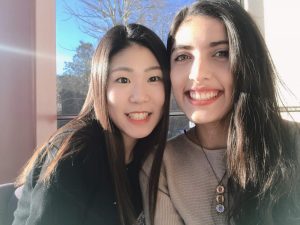
Chisato Hashimoto (Left) I’m a sophomore and Global studies major. I came to Castleton last year in late August. This is my last semeste here.
Shirley Benítez (Right) I’m a junior student in the career of Medicine in my country. I came to Castleton University this year for the Spring semester by being a part of the UGRAD program.
ABOUT THE BLOG
As international students, we talked about the life of studying abroad in the U.S. we usually compare it with our home country. Surprisingly, we can really empathize with each other, especially about the local students actions that are unbelievable in our country, differences in student life, professors, etc. We want to share with you about our experiences at Castleton and some pictures that will illustrate what we are talking about.
SURPRISING EXPERIENCES IN USA

Shirley Benítez
When I arrived Castleton I had a very warm welcoming from two students that were waiting for me, I was surprised because I didn’t expect that. That week we met people that work in different departments on Campus and everybody was very kind, I was impressed.
Honduran people are also very warm and welcoming, when we greet somebody, for saying “hello” or “goodbye” women greet men and other women with a kiss on the cheek, but men do not usually greet other men with a kiss on a cheek, they do hand shakes.
I am so glad for my experience at Castleton, especially because of the professors and all the resources they have for the students. It surprised me that every student has an advisor specific to their major, and how helpful they have been with their guidance. I also find the Academic Support Center resources helpful, as I take advantage of it. That is a resource we do not have at my university, probably because we have many students, about 90,000 compared to Castleton’s 2,000. So far, Castleton has felt more like a close community than my university back home.
It was interesting to see that people take off their shoes when entering a home, because back at home we do not do that. I thought it was typically a tradition in China and nowhere else.
~~~~~~~~~~~~~~~~~~~~~~~~~~~~~~~~~~
 Chisato Hashimoto
Chisato Hashimoto
- Warm welcome
I won’t never forget the day in August 19th. That was a long journey to get here. On my trip to Castleton from Osaka, I transited 3 times and it took more 24 hours to arrive at Albany airport. Usually, it doesn’t take so long to get here but I had a trouble and had to wait 5 hours in Dallas airport for the next flight. So I arrived at Albany around 1:00 AM. However, even though it was late at night, the Castleton staff came to pick me up by car. I was really really happy because they greeted me with a big smile. At that moment, I forgot that I was exhausted from my trip to Castleton and at the same time I’m glad chose Castleton University!
- U.S. Restroom
I still don’t feel at ease when I use the bathroom in the U.S because there is a wide gap at the bottom of the door and my legs can seen from outside also the door is small so whenever I enter the bathroom with carrying my backpack, I hit my arm on the door.
- Burp
Basically, a burp is a sound you make after eating and it goes against eating manners in Japan and seen as disrespectful. When I came to Vermont I saw many people burping after eating a meal and sometimes not during meal at all. I feel so strange when I hear someone’s burp. However, it was interesting for me to know that in China, Burping is a polite action with the meaning of gratitude that it was very delicious.
THESE ARE OUR UNIVERSITIES
HONDURAS
National Autonomous University of Honduras
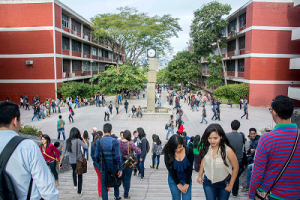
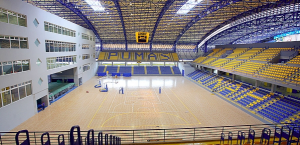
JAPAN
Doshisha Women’s College of Liberal Arts
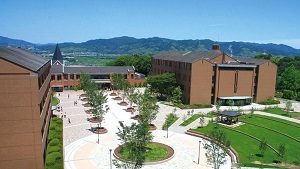

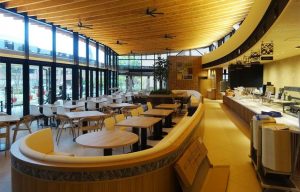
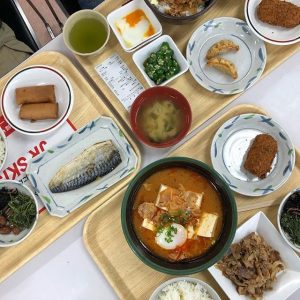
DEAR READER
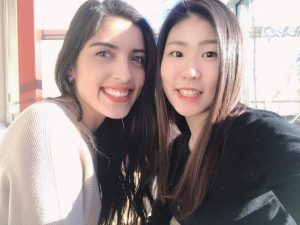
Thank you for taking the time to read our blog! We hope you enjoyed reading it! We have really enjoyed our wonderful experiences here at Castleton.
WE LOVE CASTLETON !!!!!!!!!!!!!!!!!!
By SHIRLEY & CHISATO
I am here in Castleton, along with three others, for the Global Undergraduate Exchange Program of the US Department of State. The program has two components: (1) academic, and (2) cultural. While I am here to immerse myself in American culture, I find it also fitting to share bits and pieces of the Philippines, an archipelagic country in the Pacific that has a close, but also controversial, relationship with the United States since the Spanish-American War.
As of the latest count, the Philippines is composed of 7, 641 islands and has a population of 104.9 million, composing 175 ethnic groups. It is also a reservoir of languages with 134 Philippine languages and hundreds more local dialects, according to the Komisyon sa Wikang Filipino (Commission on the Filipino Language). These numbers speak of, and all contribute to, the cultural diversity of Filipinos—furthered by various influences such as our Arab and Chinese trading relations which could be traced as far back as the pre-colonial period, and colonial experience from 3 different groups (Spain, US, Japan) spanning almost 4 centuries.
I could share a lot about the Philippines given the immense cultural diversity present in my home country, but I choose to focus on one figure in the streets of different cities in the archipelago: an ever-present but often unrecognized figure in the Philippine urban jungle.
===
Worldwide, dogs bark. In the Philippines, people do too.
Down the chaotic streets of cities in the Philippines, alongside large buses, private cars, and taxi cabs, a conspicuous and anachronistic mode of public transport makes its way through—the Philippine jeepney. Usually painted with bright colors and adorned with glaring accessories, the jeepney is a post-WW2 innovation which has become a cultural symbol as it earned its spot as the “King of the Road” in the Philippines.

(KING OF THE ROAD. A jeepney is a post-WW2 mode of public transport endemic to the Philippines. If NYC is known for its yellow taxi cabs, jeepneys just might be that for the Philippines. Image from: https://media.npr.org/assets/img/2018/03/06/gettyimages-689876692_custom-54d75b9db7ea9eae2c26488c21d64c4512795846-s800-c85.jpg)
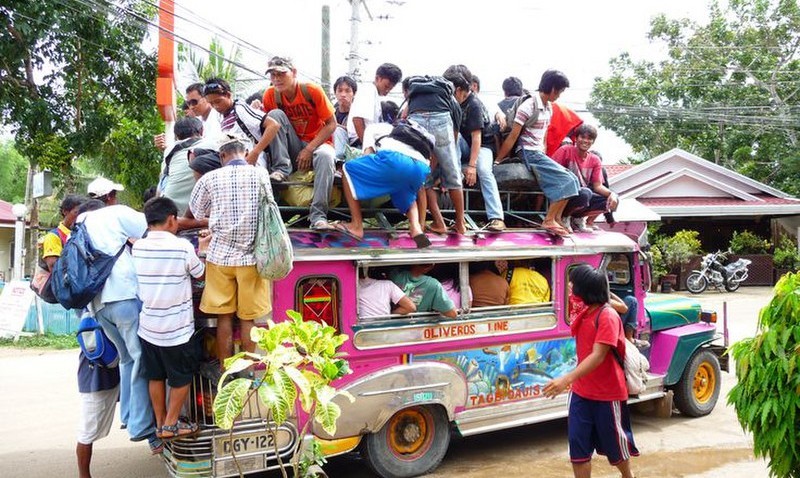
(SABIT. In certain places, even the top of jeepneys are occupied by passengers just so they would reach their destinations. Some even cling on to the outside railings, notwithstanding the scorching heat and polluted air. Image from: http://ibon.org/file/2017/12/Jeepneys_travelblogorg-800×478.jpg)
Beside these jeepneys waiting for passengers are the jeepney barkers, people who earn a living using their loud and booming voices. In the hustle and bustle of streets and roads in the Philippines, the jeepney barkers’ voices standout. Ironically, these same people are those who are not heard that much in terms of occupational identity. Worse, barkers generally have a negative image, an image which hides what might be one of the last altruistic roles in the Philippine urban jungle.

(Photo from: https://media.philstar.com/images/the-philippine-star/nation/20160122/Minimum-Fare-Jeepney-PUJ.jpg)
So what does a jeepney barker really do?
They are the people who would convince you to ride a jeepney going North when you’re really headed South. They are the people who will convince you to ride the jeep even if only half of your butt can sit because in their minds, “onsehan yang jeep oh, sampu pa lang kayo diyan sa kanan at kaliwa, o usog usog nalang po tayo diyan sa kanan sa kaliwa” (“The jeepney can accommodate 11 even people per side, you’re just 10, please move your butts, move, left, right!). They probably have not taken into consideration that people’s sizes differ.
Generally, jeepney barkers earn a living just by yelling and yelling and yelling to attract passengers. Occasionally, they would wave their hands to attract more passengers. Others would have other unconventional tactics (or even antics) to attract people. Seems simple right? Interestingly, there seems to be an unwritten code of ethics among jeepney barkers.
Since the barkers technically work for the jeepney drivers, they need to accept whatever amount the jeepney drivers gives them—or in some cases, throws at them. It’s basically a voluntary contribution—a donation at that. There’s no written contract that stipulates how much the driver should pay the barker. May that be a mere one peso coin (0.019 USD) or twenty peso bill (0.38 USD), the barker has no choice but to be thankful for the small amount given. And who knows, when a relationship with the driver is built and maintained, the small amount given can gradually increase.
Also, it is interesting to note that jeepney barkers know the concept of personal space. While they are attracting passengers to ride the jeepney, they make sure that they don’t touch the passenger—even the slightest tap on the shoulder could have repercussions. My friend got the chance to interview a jeepney barker based in Manila (the capital of the Philippines) for a documentary. The jeepney driver shared that he was once accused of “chansing” (inappropriate touching) when his hand accidentally touched a woman’s arm. While this may be a gray area, the jeepney barker stressed that since then, he made sure that his hands wouldn’t touch a passenger.
It is also interesting that jeepney barkers go out of their way to help passengers carrying heavy baggage who want to take the jeepney. While their jobs are mainly focused in attracting passengers to ride the jeepney, barkers actually go out of their way to assist the passengers—especially the elderly. They do this without asking for anything in return—and rarely do we see passengers giving them incentive for their good deed.
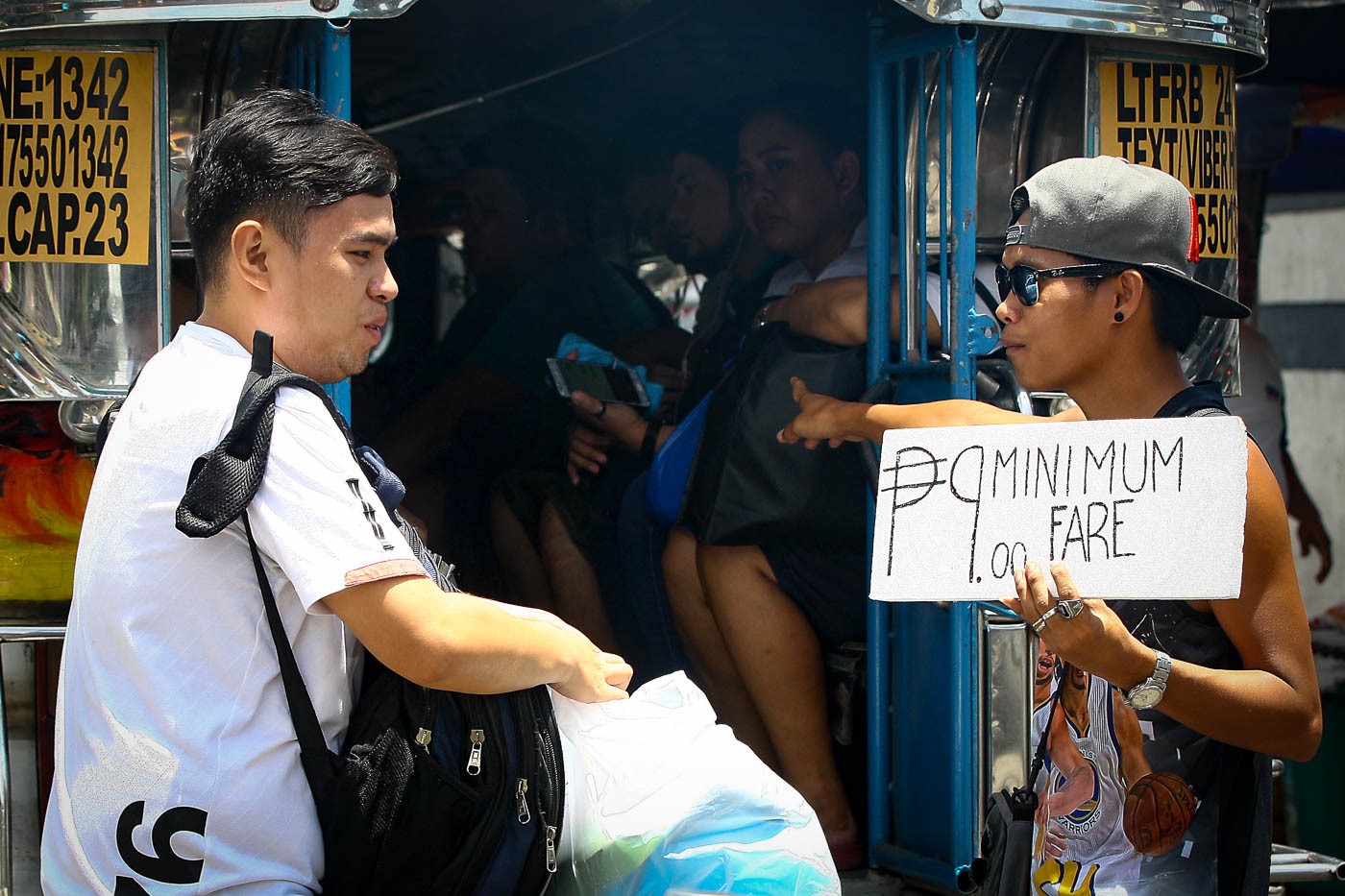
(Photo from: https://assets.rappler.com/9FC038C1255841BD8E609039F533BD81/img/04F7C7D3EB304CD292CAA3213B4CD4F1/jeepney-fare-provisional-hike-july-5-2018-001.jpg)
On the other hand, it is also important to note that there are people who view jeepney barkers in a negative light.
People may consider being a jeepney barker as a destiny for the lazy people—those that would prefer shouting all-day in the polluted streets under the scorching sun. There is a certain perception that jeepney barkers are those who do not have anything better to do, or worse, those who not interested in doing anything else. Barkers are perceived as the people whose skills are enclosed to merely the memorization of jeepney routes and jeepney capacity.
However, is this really the case? While jeepney barking is perceived as the occupation of the hopeless and the desperate, there are some jeepney barkers who prove otherwise.
In a pre-production research for a documentary being produced by a friend, I got to talk to a barker stationed in a mall’s transport terminal. He shared that he is an electrician and that he resorts to jeepney barking when he has no customers. He also shared that more often than not, his takehome pay from jeepney barking is even higher than what he earns as a freelance electrician.
This story shows that jeepney barkers are not those lazy people the society portrays them to be. Instead, the story of the barker I got to talk to and several other stories gathered by my friends show that it is precisely because of their industry and diligence that jeepney barkers chose this occupation—regardless of the societal prejudice that comes with their job, they continue to do so just so they could provide for themselves and their families.
For jeepney barkers, their lives depend on their voices. But it also important that they are given their own voices—a voice that everyone would listen to not just because they are shouting endlessly in the polluted streets of the metro. There is a pressing need for them to have their own voice in the society.
The streets of the urban jungle scream of excess labor. The presence of jeepney barkers, alongside other occupations in the streets, show that there are many unemployed and underemployed Filipinos who continue to dream for a better life. While there is no better employment opportunity, they resort to working as barkers or something similar so as not to waste time.
In a larger picture, the presence of jeepney barker—something “only in the Philippines”—mirror the apparent lack of opportunities especially for those who do not hold a degree. The presence of jeepney barkers and other street-based occupations mirror the plight of the ordinary Filipino—the simple goal of eating three times a day, with something to pair with rice, the Filipino staple.
But more than anything, the presence of jeepney barkers in the Philippine urban jungle also mirrors the “diskarte” (closest English counterpart I could think of is strategy) and the diligence of Filipinos just so they could have food in the table. The presence of jeepney barkers remind us that even the seemingly most menial jobs are meaningful jobs. While they may not have offices nor promotional opportunities, jeepney barkers exemplify the willingness of Filipinos to do anything and everything just to ensure that their families are given their basic needs.
As long as there are mouths that need to be fed, and as long as no better opportunities come their way, jeepney barkers’ calls and voices will continue to be heard in the hustle and bustle of the streets of the metro. As long as there are Filipinos would be willing to shout all-day for food and other needs, then jeepney barkers will continue to exist.
Worldwide, dogs bark. In the Philippines, people bark, too—and their presence shows two sides of a coin. It shows the lack of employment opportunities, and the increasing wealth divide in the country. It shows the plight of the ordinary Filipino caged by dysfunctional labor systems. But it also shows the persistence and diligence of the ordinary Filipino. It shows the Filipino resilience amidst societal inequalities. Barking in the Philippines provides sustenance for many families. While this may not be glamorous, this is what they need. At least for now.
Bahdja Selhi was a Global UGRAD from Algeria who attended Castleton during the Fall of 2016. She is currently in Lebanon, pursuing a graduate degree in Migration at the Lebanese American University in Beirut. Before this she co-founded Shaping Young Algerian Minds, an educational NGO, and has worked with her community on youth education, bringing lessons on leadership she learned from her time in the states.
The following is a reflection on her time here at Castleton.

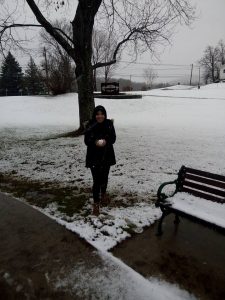
Left: On vacation in Lebanon
Right: First snow in Castleton
A year ago, I got a scholarship to study one semester in the US as an exchange student. As with most international students, and because we mostly only hear about NY or DC, I wished that I would study in one of these two big cities. However, a few days later, I received an email from Castleton. It was my first time noticing this name. The only source that I had to know about this place was the Internet, so I checked it on Google and found many beautiful landscape images. I started wondering. How can a girl who lived her entire life in a small town in the desert of an Arab country, travel to study in a snowy town uphill the mountains in another continent? How is the culture there? What about the people? And countless questions. Every night, I used to imagine and dream about everything that would be there. I drew my own wonderful picture of Castleton.
Days later, the imaginations became real. I was an “international student” at Castleton University. The journey then began.
I still remember the first day when I opened my eyes in a different room filled with marvelous theater stuff that belonged to my roommate, and I realized then that I was not home. I was so tired because of the longest trip I’ve ever taken. I sat there wondering and looking around; everything seemed odd for me. After few minutes, two friendly girls knocked my door and invited me to explore the campus and meet other international students. With curiosity, I went out with them leaving everything as it was, my luggage even unpacked. We walked outside, and the first thing I noticed was that it was all green, I was flabbergasted. This looked like heaven on earth for me.
The whole campus was astonishing, and I was I extremely eager to explore every corner of it. I still recall how excited I was, taking MANY photos and meeting other students.
After a week, the semester began. I attended classes and discovered the academic system. It was very different and flexible, and I loved the whole program. The professors were comprehensive, they helped me a lot and took my situation into consideration whenever I struggled to understand something that was common knowledge to the American students.
Before I traveled, and since it was my first experience, I was kind of concerned about how I’m going to adapt there. I surfed through several blogs, and one of the common terms discussed were “homesickness,” it made me feel a bit worried, but in fact, this wasn’t a big deal for me when I got there because Castleton gave me another home and a new family.
Homesickness was not all that I came across. One of the repeated tips that I found was that international students should not be shy, otherwise they won’t be able to make friends. Although I read this, it was hard for me to open up at first because we had so many differences and I wasn’t aware of the culture, but actually, people at Castleton accept you regardless of your background. They try to understand you, respect you, and love you just the way you are.
Eventually, I became more easygoing. From looking at differences as a hurdle, I found myself discovering several similarities. And I learned that both of them are what shape those unique lifelong friendships between people from all walks of life.
I had the chance to get to know many people from different countries such as Nigeria, China, Nepal …etc, and because of the i-seminar, organized by the campus, I could learn more about them and try their traditional dishes as well.
The university also used to plan trips for the international students once every two weeks. We visited various places, tried new things, and had so much fun together.
This great university means a lot for me. It’s the place that holds my best memories, and most importantly, the beautiful souls whom I met, the ones who made my experience fabulous. I had friends who prepared for me hot cups of tea and made me forget about my illness when I once fell sick. They organized an amazing party for us, the UGRADERs, they prepared delicious food, gave us beautiful Christmas gifts, and played with us funny games. And of course I can’t forget my best friend who made my Halloween experience unforgettable along with many other splendid days.
One of the reasons that I traveled to the US was not only to study, but also to explore its culture, and Castleton was the perfect place to do so. Traditional and religious celebrations are highly valued there. And as I mentioned above, professors were always kind and helpful. One of my favorite lecturers Mr. Supernovich, invited me to Thanksgiving dinner which had a special charm. This gave me the chance to learn more about American families and traditions.
After an incredible semester, I came back home inspired and eager to make a positive change in my society. I co-founded a non-profit project called “Shaping Young Algerian Minds” where I shared the skills and the knowledge that I gained from my experience at Castleton University. It is a leadership and educational project that aims to empower inquisitive teenagers.
Although Castleton was chosen for me, if I went back in time, and was given the chance to choose, I would definitely go for Castleton University again. And I am so glad that I got the opportunity today to write something about this place and reveal what hides behind the digital photos, because although Castleton as a town is captivating, I also believe that its people, their spirits, and the culture are more fascinating.